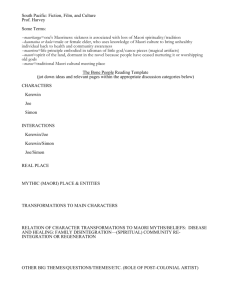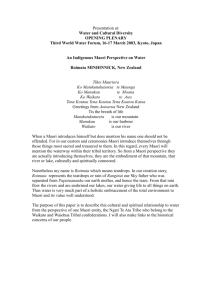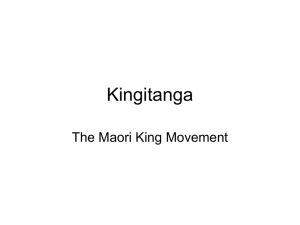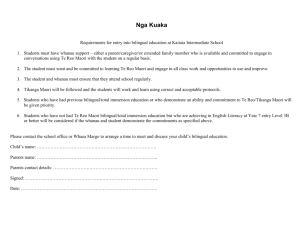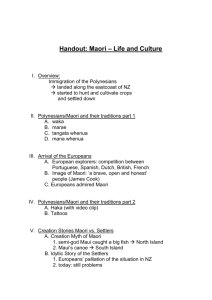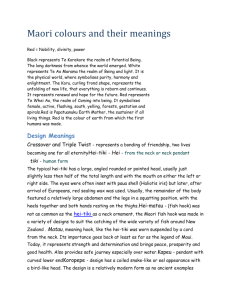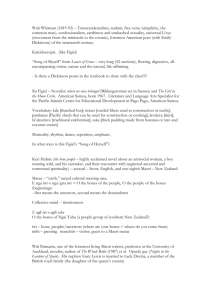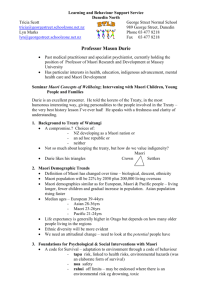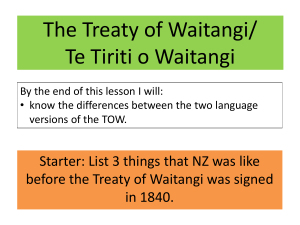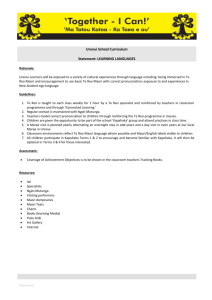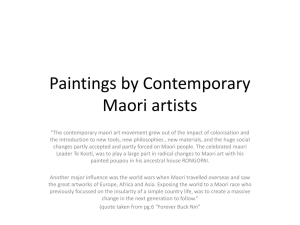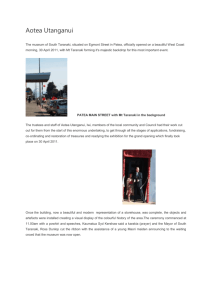Te Kingitanga: Maori King Movement of the 1850s
advertisement
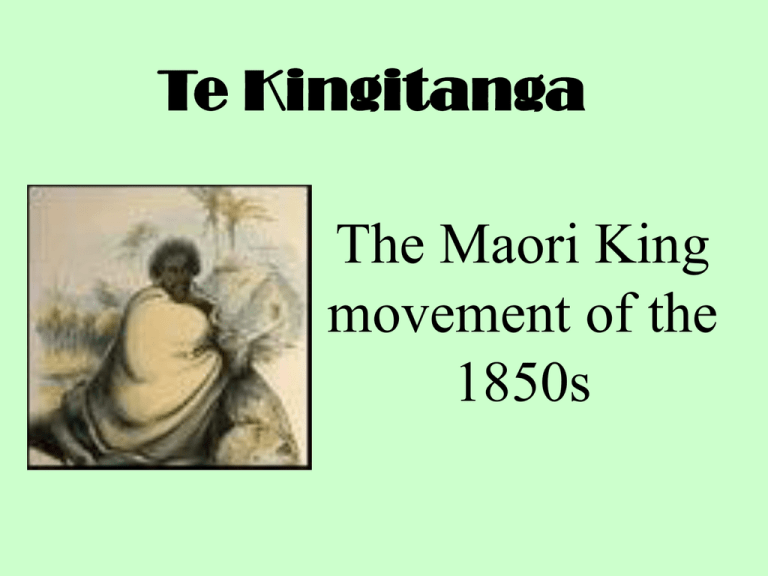
Te Kingitanga The Maori King movement of the 1850s Origins • Excessive Maori land sales to the British crown angered many • Tamihana Te Rauparaha was the instigator of the idea of Maori sovereignty • He wanted Maori to have the same status as Pakeha • Also wanted unity among tribes that looked set to tear each other apart • There was a belief that a Maori monarch would ensure this… Wiremu Tamihana – the Kingmaker • Had a leading part in the King’s installation • Saw no conflict between the King movement and the English monarchy. • “The Queen and the King, they are one. Each is on the piece which belongs to each.” Potatau Te Wherowhero • Potatau was not keen on being King • Selected by gathered chiefs in 1857 • Reluctantly crowned at Ngaruawahia in 1858 British Reaction • The British saw this as open rebellion against the British crown and thought the Maori were for creating their own laws • Kingites still agreed to Crown law; just wanted a ruler for their people who was from their people – “he who is from among thy brethren shalt thou set over thee” • Maori saw the two monarchs as equal with ‘God over both’ • British were offended at the placement of a ‘native’ on par with their Queen Implications • A boundary was set at the Maungatawhiri river line; it did not put the Maori outside of the Crown law but rather had those within the boundary subject to the King’s authority •The British saw this declaration of area a declaration of ill intent and Governor Gore-Browne wanted a showdown – his troops crossed the boundary line… •Then there was resistance to further Crown purchase of land… Outbreak of War • Battle broke out between Kingites and crown troops in Taranaki in March 1860…The first of a series that would come to be known as the New Zealand Wars Who was involved? • Not all Maori were Kingites • Certain tribes for Taranaki and Waikato were the main forces behind the movement • Today the Kingitanga movement is synonymous with the Iwi confederation Tainui The King Country • 'It was not a declaration of Maori independence – this already existed – and it added no new territory to the Maori sphere. It sought merely to unite pre-existing polities. But in other ways the Movement was an important change. Together with the rise in antiland-selling generally, it raised the profile of Maori independence from a level which the British disliked but tolerated, to a level which many found entirely unacceptable.' - James Belich
